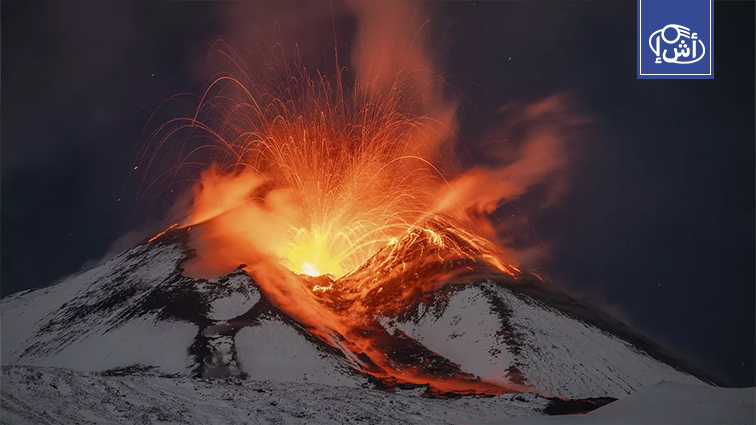A regional observatory specializing in weather and climate said that sulfur dioxide gas, issued by the “Etna” volcano in Sicily, southern Italy, reached Libyan airspace via the Mediterranean Sea.
The Tunisian Observatory for Weather and Climate stated in a statement on Saturday that Tunisia is not concerned with this gas, explaining via an attached map that the gas has now reached eastern Libya and is heading towards the Libyan desert.
The observatory added that sulfur dioxide gas from volcanoes is considered the only natural source, but its percentage is lower compared to industrial sources and means of transportation.
The Observatory indicated that this gas can cause acid rain that harms plants and water resources, but it reassured that acid rain will not fall in Libya or Tunisia due to the absence of weather fluctuations.
The Observatory noted that the gas has a negative effect on the human respiratory system, especially at high concentrations, but stressed that its passage through Libya will be rapid and its concentration is not very high.
The Observatory revealed that these gases are moving from the coast of eastern Libya towards the Libyan desert due to northern air currents, and their concentration is expected to decrease on Monday.
The observatory added that there is no great danger from this volcano, and that talking about a tsunami is incorrect, as the main cause of tsunamis is strong earthquakes in the oceans and seas.
Environmental activist and climate specialist, Hamdi Hashad, shed light on the phenomenon, pointing to images taken by satellite showing volcanic activity and the arrival of sulfur dioxide gas to the coasts of eastern Libya and the western coasts of Egypt.
Hashad warned of the impact of this gas on the air quality in the next few days in the aforementioned areas, noting that it causes stomach pain and damage to the bronchial tubes and lungs, and can increase asthma attacks even at low levels of exposure.
It is noteworthy that sulfur dioxide is a chemical compound that is produced naturally from volcanoes and artificially from industrial processes and the burning of petroleum derivatives that contain sulfur compounds.
The death toll from a house collapse in Assiut, Egypt, has risen to 14 people
